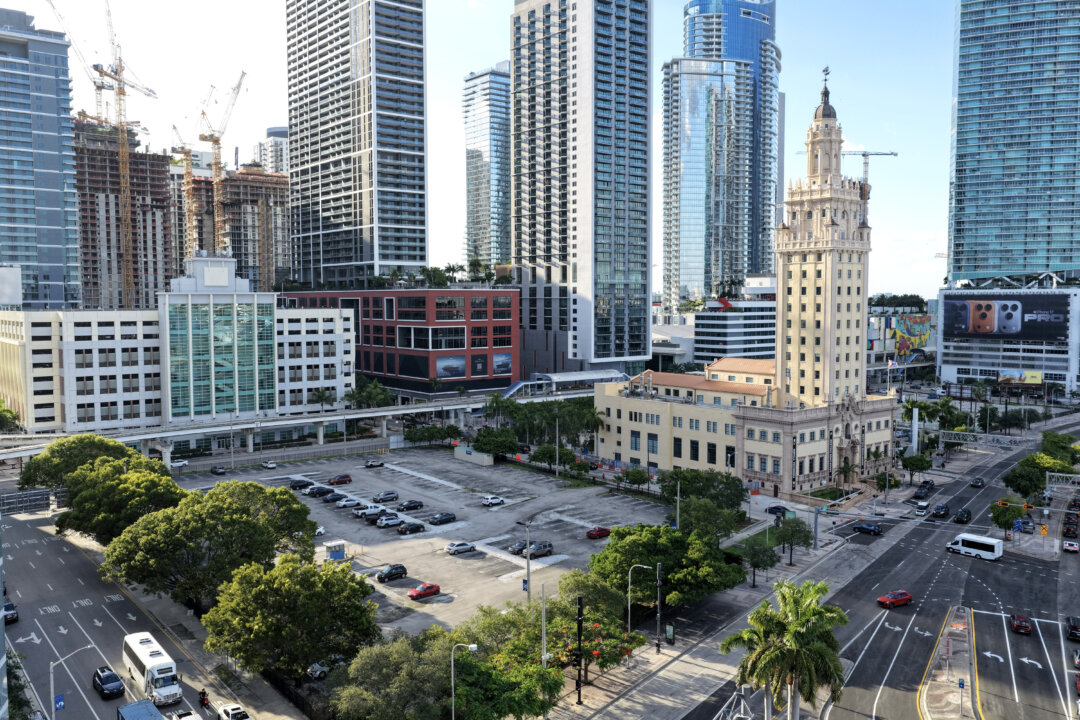Politics
Miami Gears Up for Mayoral Election as Suarez’s Term Ends

Miami is set to hold a mayoral election on November 4, 2024, as current mayor Francis Suarez reaches his term limit. The election, while officially nonpartisan, is poised to reflect the shifting political landscape of the city, particularly in light of its recent trend towards conservatism following the 2020 presidential election, which saw Miami-Dade County voting for Donald Trump.
With Suarez stepping down, a diverse field of 13 candidates has emerged, each vying for the opportunity to lead the Magic City. Among them are several former mayors who are familiar with the complexities of Miami’s political arena. The stakes are high as candidates aim to solidify their positions, especially amid a notable increase in registered Republican voters in the area.
Candidates and Political Landscape
The mayoral race includes a mix of seasoned politicians and fresh faces. Notable candidates include former mayors who previously held the position, demonstrating a strong historical connection to Miami’s governance. Others are eager to breathe new life into the Democratic Party, which faces challenges due to the increasing Republican presence in Miami-Dade County.
Polling data indicates a competitive atmosphere. Candidates are focusing on key issues such as housing, public safety, and economic development, each hoping to resonate with voters who are increasingly concerned about the direction of the city.
As the election date approaches, candidates are ramping up their campaigns, engaging with constituents through town halls, social media, and community events. Voter turnout will be crucial, especially as Miami’s electorate has seen a significant shift in party registration. The outcome of this election may not only determine the city’s leadership but also signal broader trends in the political affiliations of South Florida residents.
Implications for Miami’s Future
The implications of this election extend beyond local governance. With Miami’s evolving demographic landscape, the new mayor will play a pivotal role in shaping policy decisions that affect the daily lives of residents. From economic initiatives to social services, the leadership will have the power to influence the city’s trajectory in the coming years.
As voters prepare to head to the polls, the significance of their choices weighs heavily on the future of Miami. The upcoming election serves as a crucial moment for residents to voice their priorities and preferences, reflecting the dynamic and often unpredictable nature of the city’s political climate.
In summary, the mayoral election in Miami on November 4 represents an important turning point as the city navigates its political identity amidst changing demographics and party affiliations. As candidates position themselves to win over voters, the results will likely have lasting implications for both local and regional politics.
-

 World2 weeks ago
World2 weeks agoGlobal Air Forces Ranked by Annual Defense Budgets in 2025
-

 World2 weeks ago
World2 weeks agoMass Production of F-35 Fighter Jet Drives Down Costs
-

 Science2 weeks ago
Science2 weeks agoTime Crystals Revolutionize Quantum Computing Potential
-

 Top Stories2 weeks ago
Top Stories2 weeks agoNew ‘Star Trek: Voyager’ Game Demo Released, Players Test Limits
-

 Top Stories2 weeks ago
Top Stories2 weeks agoDirecTV to Launch AI-Driven Ads with User Likenesses in 2026
-

 World2 weeks ago
World2 weeks agoElectrification Challenges Demand Advanced Multiphysics Modeling
-

 Lifestyle2 weeks ago
Lifestyle2 weeks agoLia Thomas Honored with ‘Voice of Inspiration’ Award at Dodgers Event
-

 Entertainment2 weeks ago
Entertainment2 weeks agoFreeport Art Gallery Transforms Waste into Creative Masterpieces
-

 Lifestyle2 weeks ago
Lifestyle2 weeks agoDiscover Reese Witherspoon’s Chic Dining Room Style for Under $25
-

 Health2 weeks ago
Health2 weeks agoGavin Newsom Critiques Trump’s Health and National Guard Plans
-

 Entertainment2 weeks ago
Entertainment2 weeks agoFast & Furious Coaster Hits the Track at Universal Studios
-

 Health2 weeks ago
Health2 weeks agoResearchers Uncover New Insights into Cancer Mortality Causes









